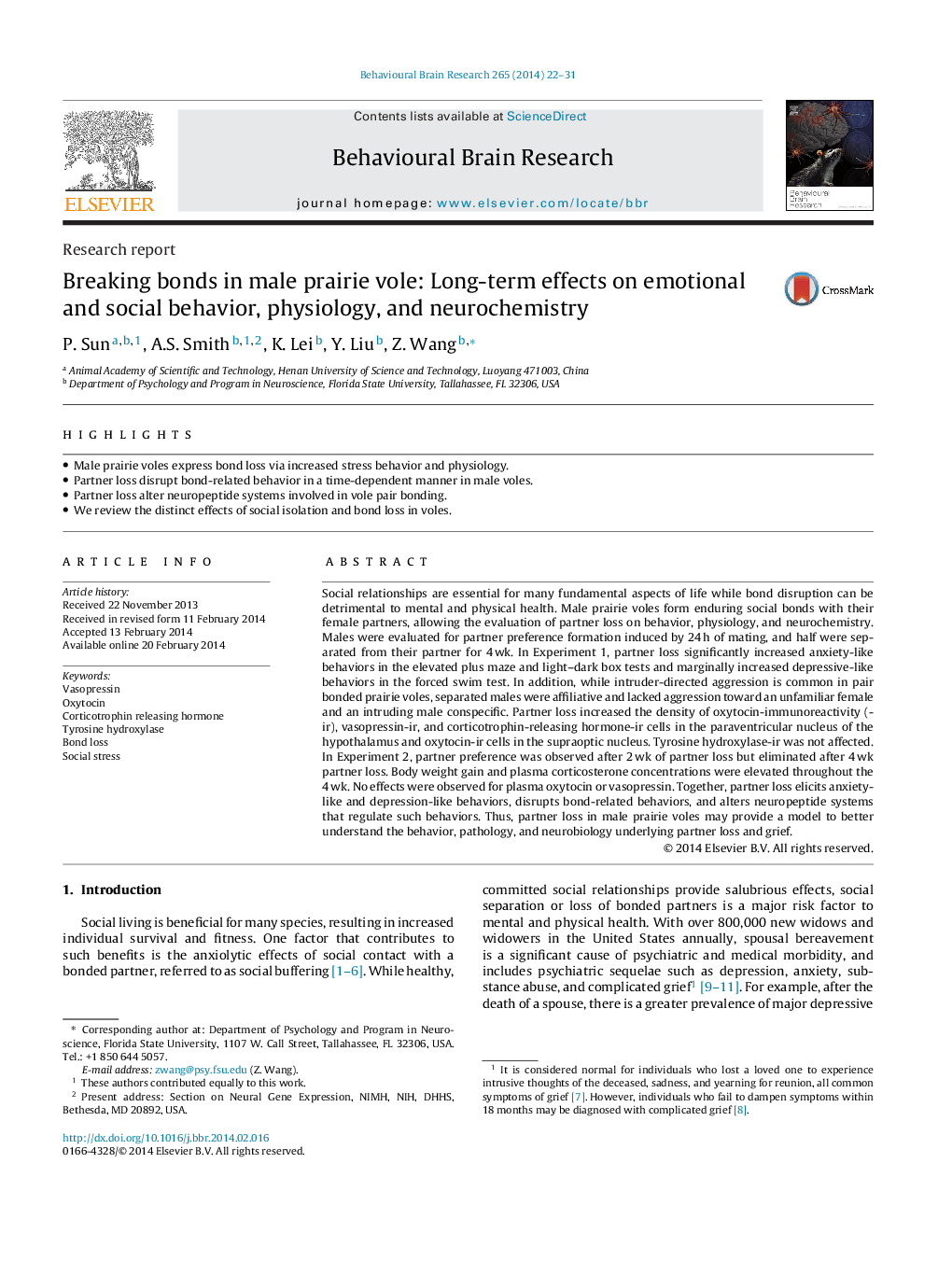| کد مقاله | کد نشریه | سال انتشار | مقاله انگلیسی | نسخه تمام متن |
|---|---|---|---|---|
| 6258283 | 1612967 | 2014 | 10 صفحه PDF | دانلود رایگان |
- Male prairie voles express bond loss via increased stress behavior and physiology.
- Partner loss disrupt bond-related behavior in a time-dependent manner in male voles.
- Partner loss alter neuropeptide systems involved in vole pair bonding.
- We review the distinct effects of social isolation and bond loss in voles.
Social relationships are essential for many fundamental aspects of life while bond disruption can be detrimental to mental and physical health. Male prairie voles form enduring social bonds with their female partners, allowing the evaluation of partner loss on behavior, physiology, and neurochemistry. Males were evaluated for partner preference formation induced by 24Â h of mating, and half were separated from their partner for 4Â wk. In Experiment 1, partner loss significantly increased anxiety-like behaviors in the elevated plus maze and light-dark box tests and marginally increased depressive-like behaviors in the forced swim test. In addition, while intruder-directed aggression is common in pair bonded prairie voles, separated males were affiliative and lacked aggression toward an unfamiliar female and an intruding male conspecific. Partner loss increased the density of oxytocin-immunoreactivity (-ir), vasopressin-ir, and corticotrophin-releasing hormone-ir cells in the paraventricular nucleus of the hypothalamus and oxytocin-ir cells in the supraoptic nucleus. Tyrosine hydroxylase-ir was not affected. In Experiment 2, partner preference was observed after 2Â wk of partner loss but eliminated after 4Â wk partner loss. Body weight gain and plasma corticosterone concentrations were elevated throughout the 4Â wk. No effects were observed for plasma oxytocin or vasopressin. Together, partner loss elicits anxiety-like and depression-like behaviors, disrupts bond-related behaviors, and alters neuropeptide systems that regulate such behaviors. Thus, partner loss in male prairie voles may provide a model to better understand the behavior, pathology, and neurobiology underlying partner loss and grief.
Journal: Behavioural Brain Research - Volume 265, 15 May 2014, Pages 22-31
